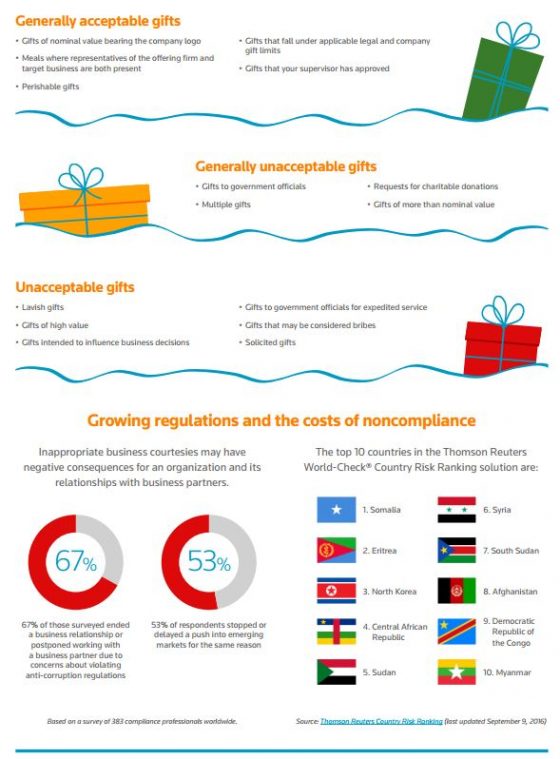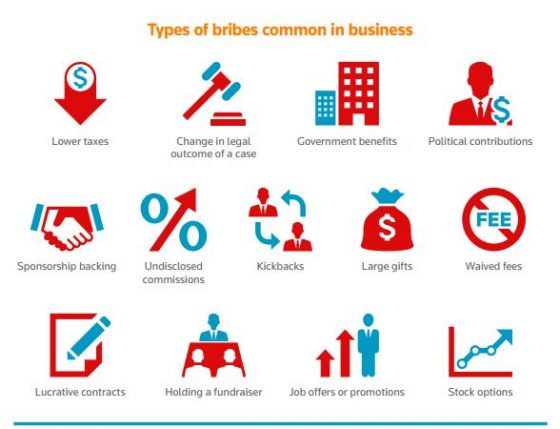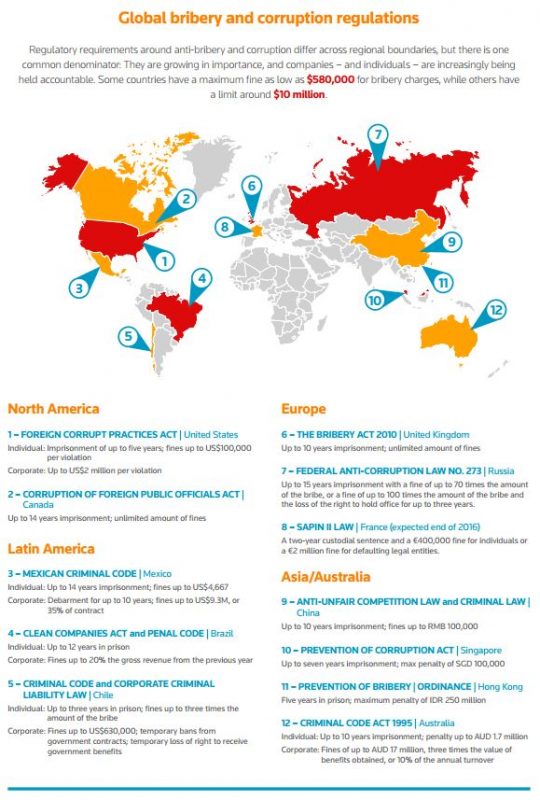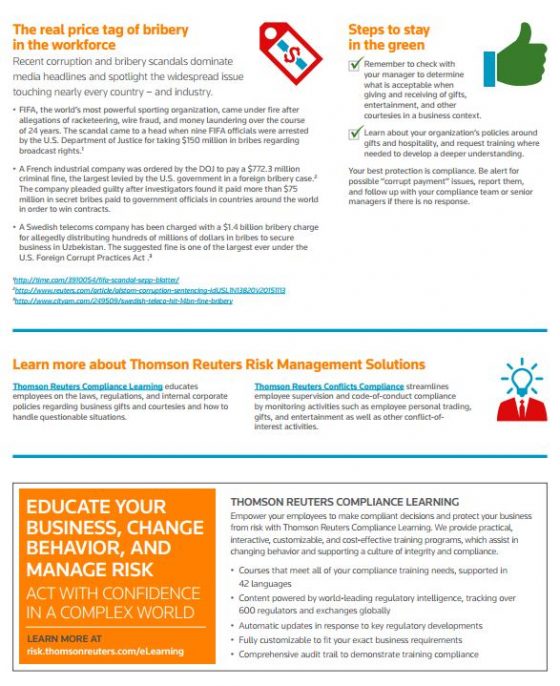With Thanksgiving and the holiday season upon us, gift-giving and compliance can be an issue for global companies, especially since more than 20% polled by Deloitte said their companies don’t assess the corruption risk of employee gift-giving.
While 20.4% of respondents don’t assess employee gift-giving corruption risk, more than 43.4% expect anti-corruption enforcement to rise in 2016,  according to a recent Deloitte poll of more than 1,600 professionals.
according to a recent Deloitte poll of more than 1,600 professionals.
“As generous as the holidays make many feel, giving gifts that could be seen as bribes to non-U.S. government officials can result in fines, regulatory action and brand damage for multinational organizations,” said Bill Pollard, Deloitte Advisory partner at Deloitte Financial Advisory Services LLP. “Now is the time to conduct gift-giving compliance training and increase efforts to help ensure anti-corruption compliance through the holiday season. As global enforcement continues to increase, take a note from regulators and make sure your corporate records around travel, gifts and entertainment are transparent and show no ‘corrupt intent’—particularly when out-of-country government officials are recipients.”
The poll results found that anti-corruption policies for giving gifts to non-U.S. government officials run the gamut: 18.2% maintain a no-gift policy and provide no gifts to customers, 16.4% give only small company logo items, 15.7% restrict gift value and 6.1% use separate policies for non-U.S. government officials compared to other customers and third parties.
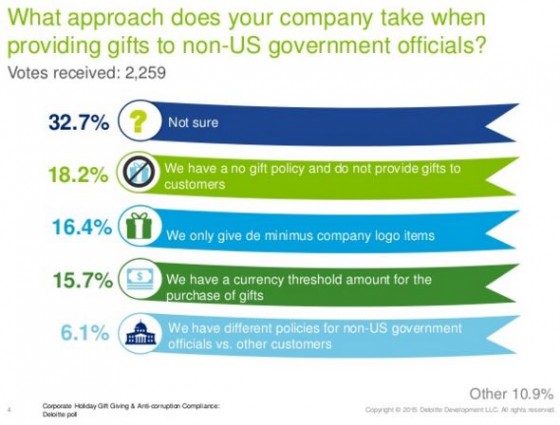
The poll also found that 43.6% of companies plan to make improvements, while 12.7% do not and 43.7% do not know.
To uncover irregularities that point to corrupt intent and bribes disguised as gift-giving, some compliance, legal and internal audit teams use visualization and analytics tools. However, just 8.4% of respondents said their organizations effectively use visualization and data analytics technologies to support anti-corruption efforts. A full third of them (33.1%) didn’t use the tools at all.
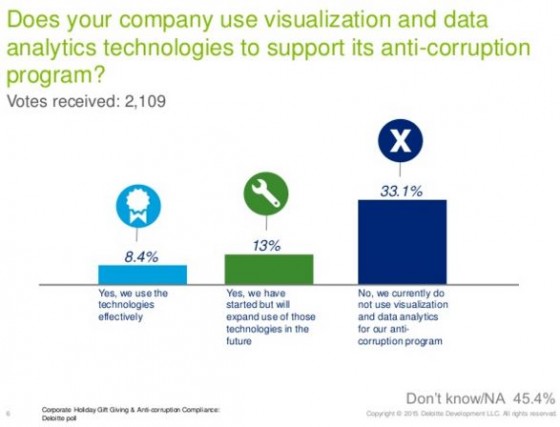
Leading practices to prevent and detect corruption in gift-giving include:
- Set ground rules clearly — Describe the nature and type of acceptable gifts, payments, travel and entertainment. Escalate all gifts for government officials to compliance for review. Create an approval process with aggregate dollar limits. Define the disciplinary process for non-compliance.
- Act globally — Ensure that rules are consistent not only with U.S. laws but local laws and customs. Translate that guidance into all appropriate languages in which your organization operates.
- Keep gifts corporate — Give gifts that feature company logos, reflect the organization’s products and ensure they are intended for official — not personal — use (such as a business card holder).
- Make gifting inclusive — Give gifts publicly and transparently, and involve teams as opposed to individuals (such as specialty baked goods for a team to share)
- Prohibit cash or its equivalents, such as gift cards.
“Anti-corruption visualization and analytics tools can help address varied global anti-corruption laws and gift-giving customs, making multi-national anti-corruption management easier than before,” Pollard noted. “Nothing replaces the fundamental value strong anti-corruption professionals, policies and procedures do.”

